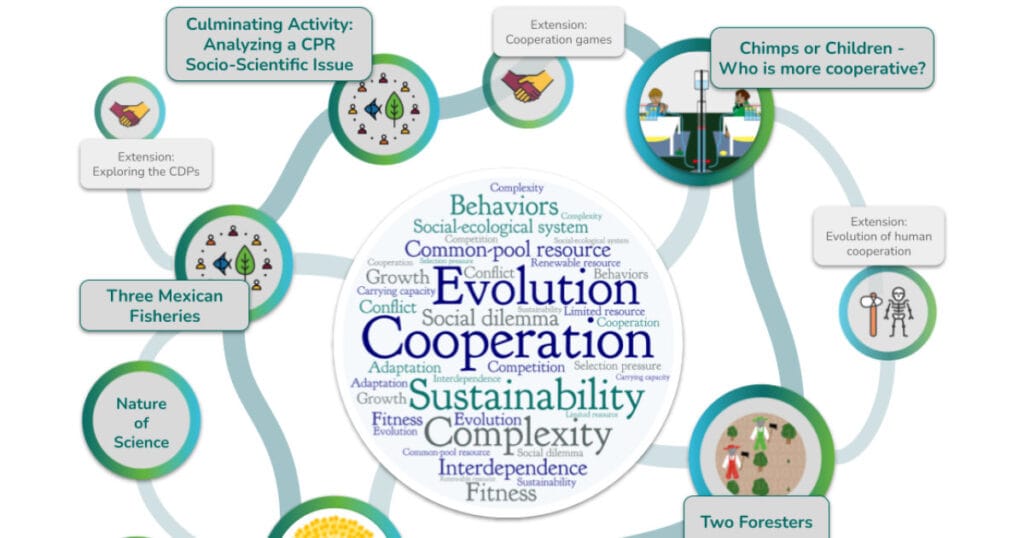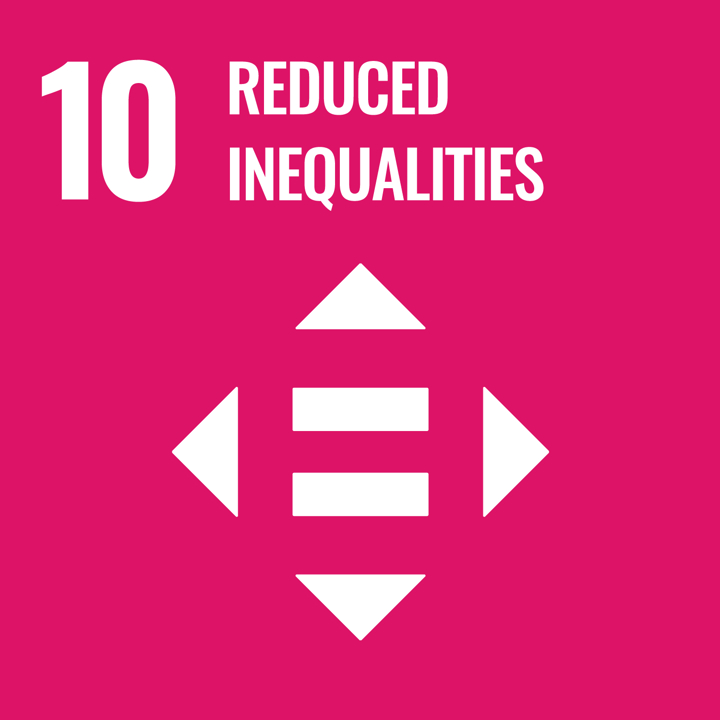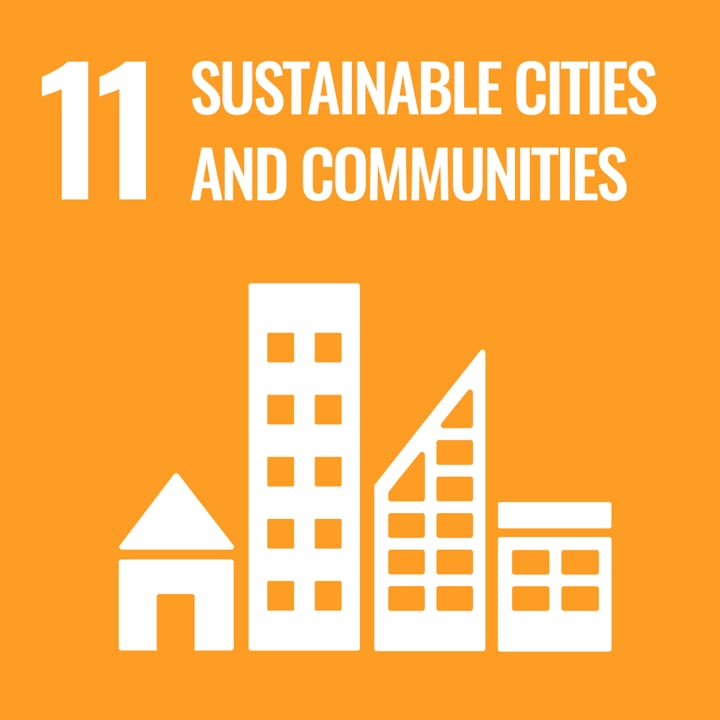
Intended End User: Teacher
Age Group: Upper Secondary
School Curriculum: Science; Social & Environment Science; Business Studies
Themes and Topics: Behaviour & Lifestyle; Collective Action; Environmental Change; Economics; Futures Thinking; Food and Agriculture
Duration: 5 x lessons, each 20 – 90 min; 1 x project 1.5 – 8 hrs; + 7 Further Extension resources, each 20 – 90 minutes.
Type of Resource: Game, Audio/Video, Lesson Plans, Simulation, Online Tool, Online Course, Workshop
Keywords: Development of Behaviour, Systems Thinking, Complex Systems, Sustainable Resource Use, Cooperation, Deeper Learning, Digital Model
Languages: English, German
Description
Sustainable resource management is often a matter of managing common-pool resources (CPR), i.e. social and material resources shared by groups of individuals. CPR can be prone to overuse through the competition between resource users who are motivated to maximize their resource use (or to contribute little to the maintenance of the resource) for individual gain and at the expense of group-level sustainability, an outcome known as the Tragedy of the Commons. CPR dilemmas are pervasive, not only in human contexts, but also across the non-human living world.
Exploring contexts across life in which evolution has favoured cooperative traits around shared resources can serve as fruitful lessons to help students gain a deeper understanding of the conditions and mechanisms that foster cooperation and sustainable resource use, and critically transfer these to a variety of socio-scientific issues.
How to use this resource
This collection of lesson plans includes 5 core lessons and 1 project:
- Chimps or children – who is better at sharing resources? – A comparative behavioural research experiment exploring the abilities of chimpanzees and of children to cooperate around a shared resource.
- NetLogo: Two Foresters – An interactive introduction into concepts of ecology, behavioural ecology, and sustainability with a computer simulation of a simple social-ecological system.
- NetLogo: Evolution and competition for forest resources – This NetLogo model builds on the model of Two Foresters. In this model, agents reproduce based on the amount of resources that they harvest.
- Life in groups and conflict resolution – A reading text about the challenges of life in groups and how groups across biology have found ways to solve these challenges.
- Three Mexican fisheries – Students compare the stories of three Mexican fishing villages to understand the factors that enabled some villages to sustainably manage their fishing resources, while others failed.
- Analysing social-ecological systems – In this project, students analyse a select real-world social-ecological system by looking at factors of the resource(s) and ecosystem, resource user behaviours, and governance, to develop.
The resources
The resources are part of the chapter Evolving cooperation and sustainability for common pool resources (Hanisch et al. 2023), published in the e-book Learning Evolution Through Socioscientific Issues (Sá-Pinto et al. 2023).
Learning Outcomes (Teachers)
- Elicit prior knowledge and further develop knowledge and comprehension of key Sustainability Citizenship key concepts, challenging established worldviews and values.
- Apply a range of suitable tools and frameworks to promote student Sustainability Citizenship
- Reflect on practice and examine national curricula to identify opportunities to promote Sustainability Citizenship in interdisciplinary ways and engage with external stakeholders.
- Collaboratively synthesise the knowledge, tools and frameworks to create educational materials and lessons plans adapted to their own local context
- Develop and apply assessment criteria to evaluate Sustainability Citizenship in students.
- Through workshop activities and communities of practice, build capacity and agency as Sustainability Citizenship educators and leaders.
Green Competencies
- Embodying Sustainable Values: Valuing Sustainability; Supporting Fairness; Promoting Nature
- Embracing Complexity in Sustainability: Systems Thinking; Critical Thinking; Problem Framing
- Envisioning Sustainable Futures: Futures Literacy; Adaptability; Exploratory Thinking
Creative Commons

OpenEvo is an educational innovation project from the Department of Comparative Cultural Psychology at the Max Planck Institute for Evolutionary Anthropology. We welcome inquiries about our resources, projects, and potential collaborations. If you find something of interest on the site, please feel free to contact our project lead, Dustin Eirdosh via e-mail.
SDGs





